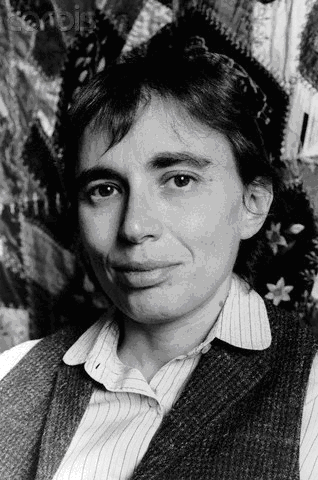One Art
BY PROF. VAROL AKMAN
 Marilyn Hacker
Marilyn Hacker
"I like the tension in a poem that comes from the diction of ordinary speech playing against a form."
Marilyn Hacker was born in the Bronx in 1942. She attended the Bronx High School of Science and enrolled at NYU at the age of fifteen, earning her B.A. in Romance Languages. In 1961, she married the science-fiction writer Samuel R. Delany; the couple remained married for thirteen years and had one daughter. Presentation Piece (1974), Hacker's first collection of poems, was the Lamont Poetry Selection of The Academy of American Poets and a National Book Award recipient. Hacker's art is all at once political and personal, conventional and radical. A meticulous formalist, she revives poetic traditions of rhythm, meter, and stanza and applies them to modern-day themes. She is also a highly regarded critic, editor, and translator. She was editor of The Kenyon Review from 1990 to 1994. She has received numerous honors including the Bernard F. Conners Prize from The Paris Review and fellowships from the Guggenheim and the Ingram Merrill Foundations. In 2008 she was elected a chancellor of the Academy of American Poets and won the PEN/Voelcker Award for Poetry in 2010.
Hacker's books of poetry include Separations (1976); Taking Notice (1980); Assumptions (1985); Love, Death, and the Changing of the Seasons (1986); Going Back to the River (1990); The Hang-Glider's Daughter (1990); Winter Numbers (1994); Desesperanto (2003); Essays on Departure (2006); and Names (2009).
"Migraine Sonnets" appears in Essays on Departure. The poem is a four sonnet sequence that displays Hacker's trademark rhyming. It takes place late at night and begins with the menace of a migraine. The frustrations of sleeplessness are then intermingled with reminiscences of a "lie" that ended an intimate relationship. Reviewing Essays on Departure in The Guardian, George Szirtes concluded: "Hacker is, to use a trite term, a major poet. More than that she is exciting and true, and life practically spills from her poems. But she doesn't spill it. She carries it right across the street, high above it, without spilling a drop."
You can hear Hacker reading "Migraine Sonnets" at http://www.theparisreview.org /audio/5264/migraine-sonnets-marilyn-hacker
Migraine Sonnets
Entre chien et loup
It's a long way from the bedroom to the kitchen
when all the thought in back of thought is loss.
How wide the dark rooms are you walk across
with a glass of water and a migraine
tablet. Sweat of hard dreams: unforgiven
silences, missed opportunities.
The night progresses like chronic disease,
symptom by symptom, sentences without pardon.
It's only half past two, you realize.
Five windows are still lit across the street.
You wonder: did you tell as many lies
as it now appears were told to you?
And if you told them, how did you not know
they were lies? Did you know, and then forget?
There were lies. Did you know, and then forget
if there was a lie in the peach orchard? There was the lie
a saxophone riffed on a storm-thick summer sky,
there was the lie on a post-card, there was the lie thought
and suggested, there was the lie stretched taut
across the Atlantic, there was the lie that lay
slack in the blue lap of a September day,
there was the lie in bed, there was the lie that caught
its breath when it came, there was the lie that wept.
…